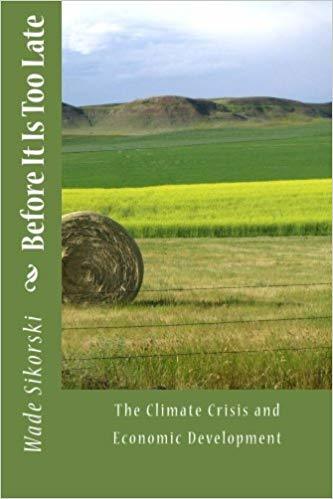I live on my family’s farm in Fallon County, Montana near where the Keystone XL pipeline will pass. My neighbors here want the pipeline, believing it will provide a boost to the local economy.
I think they’ve been misled by pipeline advocates who have exaggerated benefits, especially the number of jobs it will generate. However, I grudgingly agree, the pipeline will provide the local economy with some jobs and increase tax revenue. I want to explain why I, nevertheless, remain opposed to it and other fossil fuel projects like it.
The climate crisis poses a serious threat to agriculture and our food security. While increasing carbon dioxide levels do have a fertilizing effect on crops, everything that comes with them makes it more likely that crop yields will fall, perhaps abruptly past a certain point. It isn’t just the  higher temperatures that threaten agriculture; it’s changing precipitation patterns, increasingly extreme weather, and a long list of increasing disease, insect, and weed problems that come with climate change.
higher temperatures that threaten agriculture; it’s changing precipitation patterns, increasingly extreme weather, and a long list of increasing disease, insect, and weed problems that come with climate change.
For me, as a farmer, the main problem with the climate crisis is that nothing is normal anymore, not temperatures, not rainfall, not even the direction of the wind. To develop best practices for their farms, farmers depend on each year being like the last. Whatever the variations from year to year, so long as the climate reverts to a norm the next, farmers can continue farming as they have, knowing when to plant, what to plant, and how to plant. But if the climate starts changing, and each year is nothing like the last, past experience is no guide to future success.
I used to think climate change would happen slowly, perhaps not even perceptibly, with gradually changing climate records the only proof, but that is not what I am seeing. Instead, extreme weather events like droughts, floods, heatwaves, hail storms, and tornadoes, have been becoming both more frequent and severe across Montana.
A couple of years ago, for example, a hailstorm hit our farm, completely wiping out the crops close to home, sparing only a few winter wheat fields miles away. It was the worst hailstorm ever for us. I know this because my great grandfather built a Quonset back in the 1930s. It was made of heavier steel than is common now, and before this storm, there were only a few dents in it that had accumulated over the decades from all previous hail storms. The pings were perhaps, on average, an arm’s length apart. But after the storm, the pings were within inches of each other. Our Quonset looked like a golf ball, as did our pickups.
When I was a child, we occasionally heard of tornadoes in North Dakota, but we never had them where we lived. Never. Now, almost every other year, we are getting tornadoes that are far more powerful than anything we might have expected. One of them assaulted Baker, the town near my family’s farm, a few years ago, filling the lake in the center of town with debris, costing the taxpayer millions of dollars to dredge. More recently, another tornado picked up a neighbor’s tractor in Carter County, and bounced it over the hills, breaking it into pieces, many of them small enough to pick up and throw in the pickup.
In economic terms, the millions of dollars of damage these tornadoes are causing might be the least of it. A couple of years ago, a drought caused the worst hay yields of my life. Before, I’ve usually swathed most of every hayfield on our place, but this time most of our hayfields didn’t grow enough even to bother trying. This fall, on the other hand, it was so wet, neither our neighbors nor we were able to harvest our corn crop before the snow came.
The climate crisis, in short, is making our weather too erratic and extreme to farm. I shudder at what could happen if things continue as they have, with each year developing more extreme weather than the year before. Agriculture across Montana is in danger; it truly is. And so, we all have a choice to make: Continuing to use fossil fuel as we have, doing things like building the Keystone pipeline and operating Colstrip, or being able to eat. We can’t do both, and so which would you rather have, oil or food?
Wade Sikorski, Ph.D., has written several books on political ecology, including Before it is Too Late: The Climate Crisis and Economic Development.